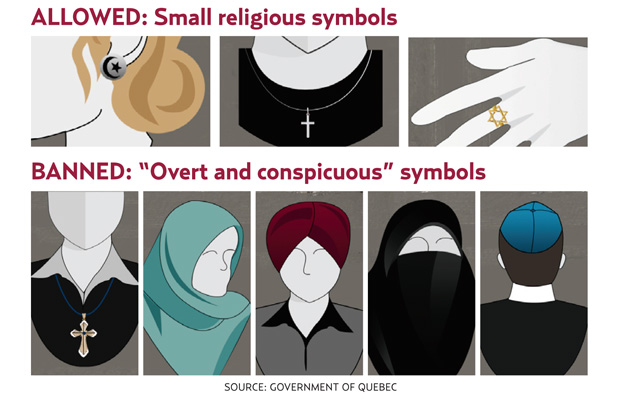You can change the conversation. Chip in to rabble’s donation drive today!
What can an American Catholic teach Muslims? And what can a Muslim of Egyptian heritage tell Canadians?
Plenty, as it happens.
At the Reviving the Islamic Spirit Conference (RIS) in Toronto, Dr. John Esposito urged Muslims to embrace their rights, and Dr. Tariq Ramadan asked Muslims to act with the heart and think with the mind — to know and to love our fellow man.
Geopolitical realities have thrust the Middle East onto front pages on a daily basis. Like it or not, a resurgent Islam has emerged on the landscape. But perhaps most disquieting is the rapid rise of the Muslim minority in North America. Domestically, Islam as a cultural, political and social force can no longer be ignored.
Demographics are changing. The Pew Research Center in its 2011 report on Muslim Americans estimated numbers at 2.75 million. Data from the National Household Survey of 2013 found that Canada’s Muslim population has exceeded the one million mark.
For some, it seems these are chilling figures. So it’s surprising RIS attracted no mainstream media — if only to document the ‘threat’ posed by a looming Islamic renaissance. Perhaps it’s only in the anonymity of the internet where self-appointed knights can pen warnings of the barbarians at the gate.
Dr. John Esposito speaks of fear made tangible
Dr. Esposito, director of the Prince Alwaleed Bin Talal Center for Muslim-Christian Understanding at Georgetown University, delivered a session entitled, “Get up! Stand up for your Rights!”
Dr. Esposito’s introduction to Islam came by accident. Brooklyn-born, he spent a decade in a Franciscan monastery. In graduate school his chairman insisted that he study Islam. Resistant at first — Islam was unknown in the late 1960s — he finally capitulated. Providentially, with the Shah’s ousting and the Tehran hostage crisis, Islam leapt onto the world stage and he found his expertise in demand.
Dr. Esposito spoke about threats to stability in the west and abroad. He says it’s imperative to understand the Muslim world and sees the tension between reformers such as Leila Bakhtiar, first female translator of the Quran, and (mostly male) traditionalists, who resist fresh interpretations, as an expected hurdle in the evolution of Islam.
He states the largely negative depiction of Muslims in media is driven by two factors: (1) bad news sells, and (2) Islamophobia is multiplied exponentially by the rise of social media.
One pressing question facing Canadians is if and how faith can exist within a secular society. Dr. Esposito argues that Quebec is following the European lead to secular fundamentalism and that its proposed charter on secular values is fear made tangible by cynical political elites to manipulate an uncertain electorate.
His message for Canadian Muslims is simple. As citizens who enjoy the freedoms of western society, celebrate those freedoms. Do the work. Stand up for your rights. Use hard data to reveal the true narrative of North American Islam — that of equal citizens with concerns in common to all.
Dr. Tariq Ramadan speaks of divisive politics
Dr. Tariq Ramadan is a Swiss born scholar and reformist. Usually recognized for his erudition, he is an Oxford University professor and the grandson of Hassan al Banna, the founder of Egypt’s Muslim Brotherhood, which was recently declared a terrorist organization.
An eloquent speaker who cites the pivotal role of the human heart, he spoke of the need for wisdom and courage as weapons with which to wage a jihad of meaning. He describes wisdom as the power of the mind and courage as the power of the heart.
He calls for reform within western Islam. Stop looking to a gloried past or to “Muslim” nations where corrupt leaders impose their own version of a puritan Islam devoid of humanity.
Muslims tend to whine; cease and desist, Dr. Ramadan says. Speak up for those who are truly oppressed, like the indigenous peoples of Canada.
When asked about the future of Egypt after the military coup, he responded succinctly, “No one knows.” Strongmen like Mubarak impose a kind of order, while Morsi bungled badly with his mandate.
Of the Quebec charter of values, he noted that the Hijab remains a flashpoint for both Muslims and westerners. A woman’s dress or lack of it elicits a visceral response and has led to a headscarf ban in Europe and a simmering, often ugly debate here in Canada. Dr. Ramadan declared that no one can impose a dress code and that women should be autonomous and free to choose. He said Quebec’s strategy is the ploy of divisive politics. The only response is the refusal to be silent in the face of secular ideology.
Dr. Esposito and Dr. Ramadan are two thinkers celebrated by both academics and the public. Springing from different soils, each has an unequivocal message for both Muslims and western societies and each has issued a metaphorical call to arms.
How revolutionary is that?
Like this article? Chip in to keep stories like these coming!
Ferrukh Faruqui is a writer who has been published in the Medical Post, the Muslim Link and Ottawa Life, and blogs for the Huffington Post.
Photo: government of Quebec



